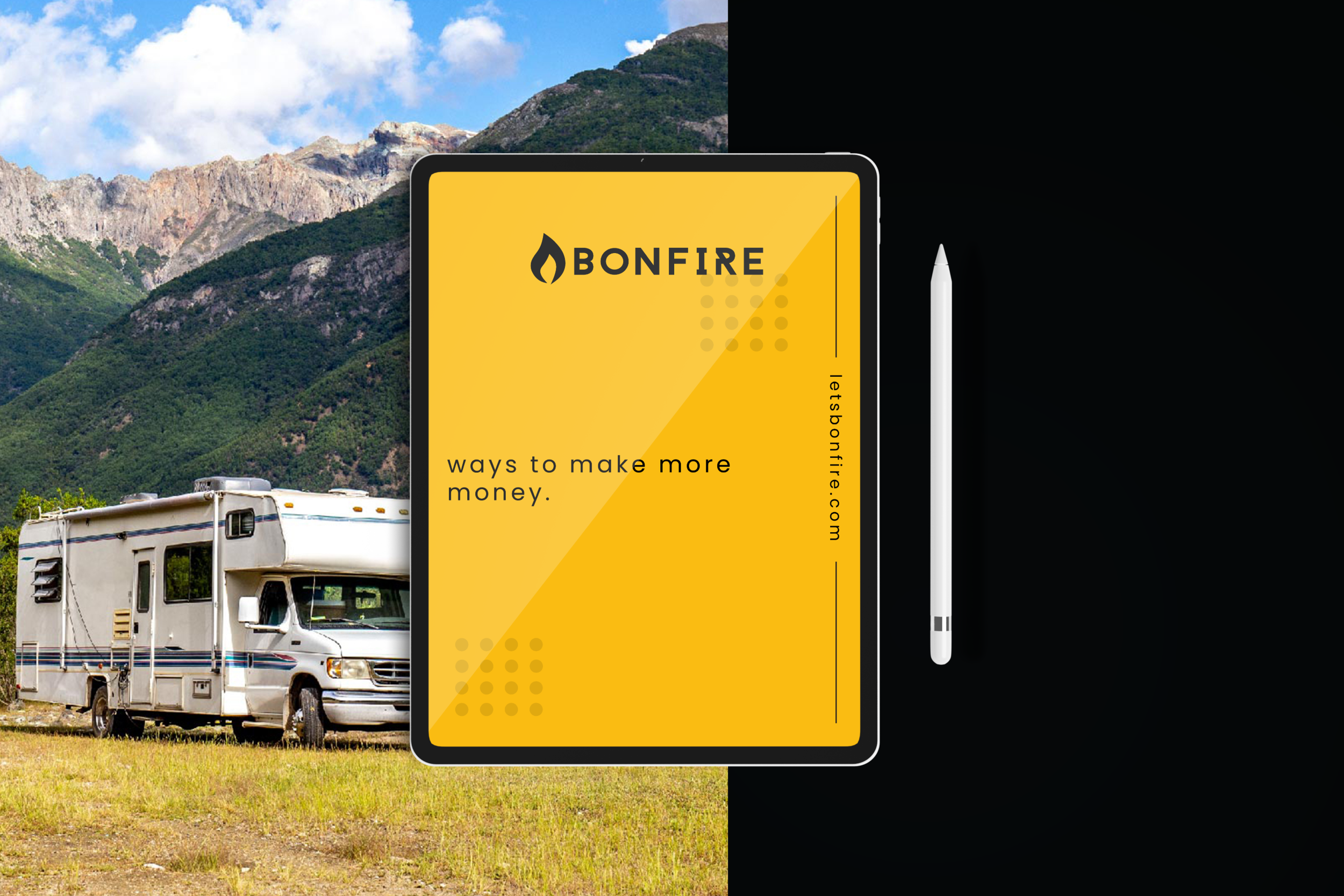From wildfires in California to hurricanes in the Gulf, natural disasters can create life-threatening situations and are getting more extreme each year. Figuring out how to safely evacuate your park and how to handle deposits from those whose trips are impacted are just two of the MANY things you have to think about when running an RV Park or campground. However, being prepared for natural disasters can mean the difference between life and death for the customers and residents of your parks.
Yes, all disasters vary in the ways you prepare but they do all share commonalities in preparation. We all know coming up with a plan for a hypothetical situation can be tough. So, here are some basics to prepare for any natural disaster at your RV Park or campground.
Money, Refunds, and Reservations
When any park is forced to close, money is lost. This is obvious. We have seen closures have devastating impacts at many seasonal parks throughout the US during the start of the pandemic. When hearing about any park closing, customers automatically think about their money, not the money the park is losing. But mitigating the initial impact of large amounts of refunds can help the financial burden of a closure. How can you mitigate that as an owner? Offering guests the option to keep the money as credit for a future stay. Offering them a free amenity add-on if they choose to stay another time could dissuade some customers from asking for full refunds. After all, even if your terms of the agreement state that the deposit is nonrefundable, to keep that money will only lead to bad reviews and frankly, pissed-off customers. Most people, if you are honest about the impact that large-scale refunds would have on your park, will allow you to keep the money as long as they are promised something in return, like another date.
Note and shameless plug: In need of a quick and concise way to reach all those customers via email? Bonfire’s simple reservation management software allows you to change reservations with ease, provide credits to their accounts, and even automatically email them new confirmations seamlessly. When notifying your current customers of evacuations while trying to notify future customers, the last thing you need to be worried about is paperwork.
Long-Term Residents
For those parks with long-term or permanent residents, there is a little more to think about. These people’s lives are at your park and, for a lot of them, their RV doesn’t just easily pick up and move. There are a few things you can do to help these people out. One idea that seems to be catching on is low monthly HOAs. The idea is to have permanent residents pitch in at a low monthly rate until their amount hits $500. Then, instead of spending that money on improvements, it just sits until it is needed. If the resident moves, they can take their money out. So, if any evacuation is needed, the residents have enough money for a hotel room or gas if needed while they are away from their residence.
The other way to ensure all residents have a way out is to require their RV to run for at least 10 minutes or for them to have another form of transportation. Once a month, a park employee would have to check to make sure the RV was operational, so everyone in the park is able to leave if needed.
Escape Plan
Next thing every park should have a plan for is evacuation from the park. At a minimum, the park plan should include the following information: elevation of the park property, type of disasters common to your area, public warning signals used in the community, local emergency broadcast station frequency location, phone numbers to the local Red Cross chapter or other emergency agencies' phone numbers. Additionally, here are some questions to ask and answer about your park to come up with your park’s evacuation plan:
Identify the entrances and exits in the park.
Identify one way and two way traffic areas.
Identify those who need special assistance to evacuate.
Would any section of the park be easier and quicker to evacuate first and are there any potential obstacles in the park that would hinder a section-by-section evacuation route?
If an entrance or exit is blocked, what is the alternative route?
When deciding your evacuation plan, you also need to account for the major routes out of the area so you can properly guide people away from the impacted area. Having maps or directions to hand out if cell service is down will be critical.
Finally, you need to make sure all residents are gone, safe, and accounted for. Assign an employee who will be responsible for sweeping the park to make sure no one is left behind. They will also be responsible for making sure anything important from the office, such as computers, tax information, etc. is gathered. Not to keep tooting Bonfire’s horn, but this is another BIG plus of Bonfire. Everything is stored in the cloud. So, if something happens to your park, you don’t need to load up your computer or filing cabinet. All your records are in one place, which can be accessed from anywhere with WIFI.
Click here to read about the pros and cons of the top software offers for campground management and decide for yourself if Bonfire is right for your campground! We are so sure you will find Bonfire to be the leader in Campground Management Software, we want to let you try it FREE for 30 days. Click here to book a walk-through of our software and start your free trial. Have questions? Send us an email at howdy@letsbonfire.com.









